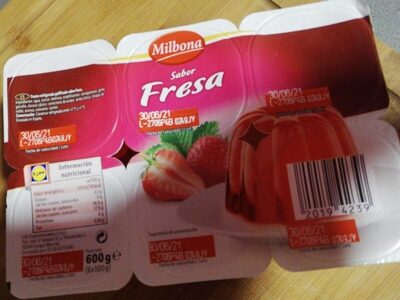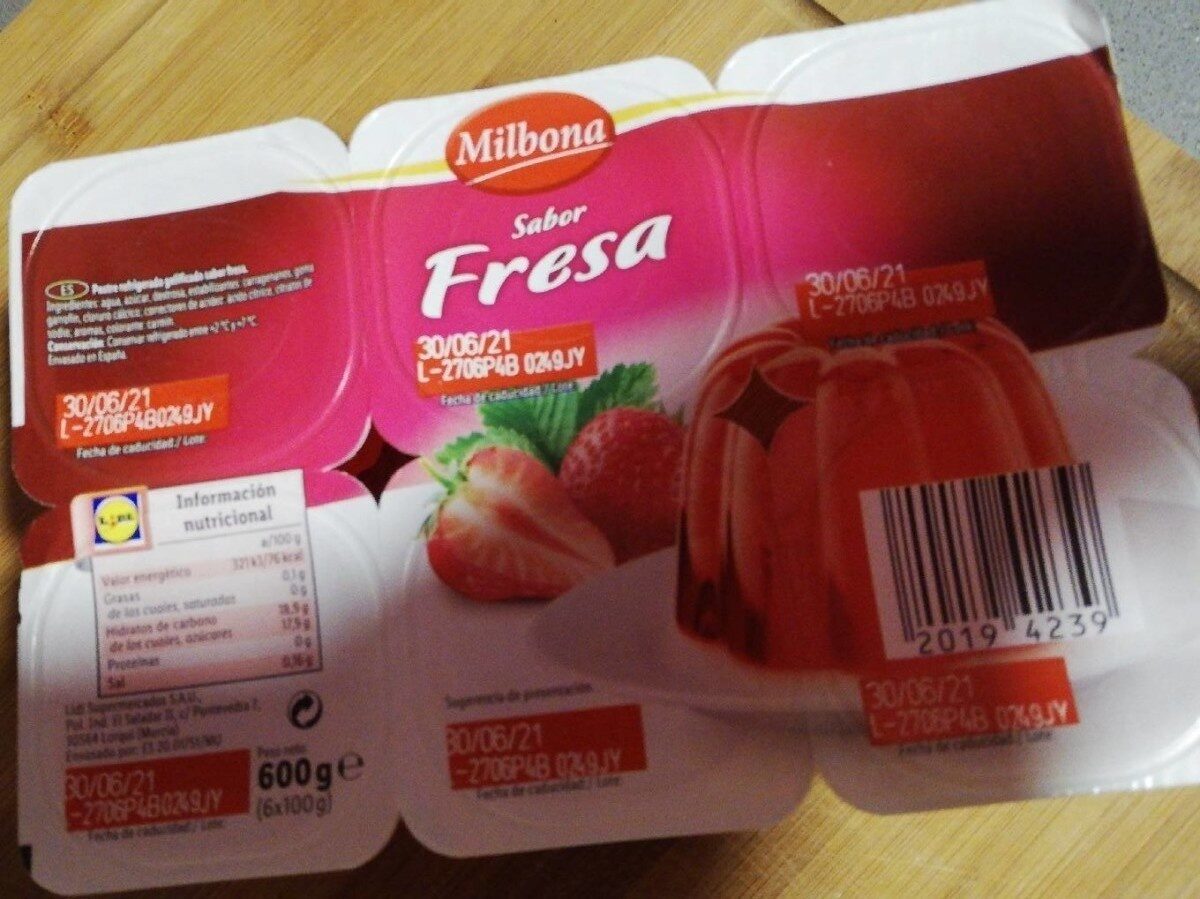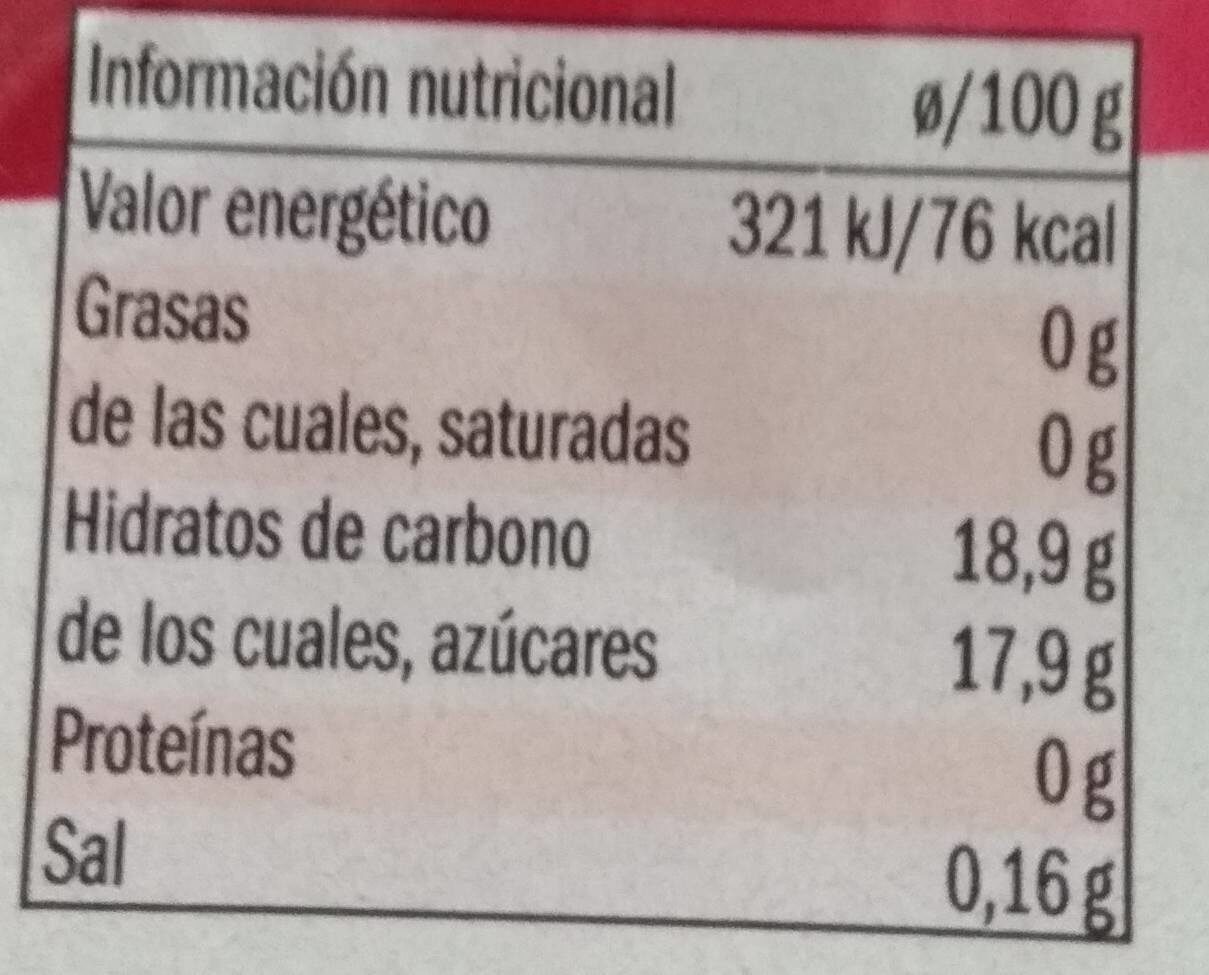Gelatina - Milbona - 6 x 100 g LLEVA INSECTOS
Codi de barres ambigu: aquest producte té un codi de barres amb número de circulació restringit per a productes d'una empresa. Això significa que diferents productors i botigues poden utilitzar el mateix codi de barres per a diferents productes.
×
Aquesta pàgina del producte no està completa. Podeu ajudar a completar-la editant-la i afegint-hi més dades a partir de les fotos ja disponibles, o fent-ne més amb l'aplicació de androide o iPhone / iPad. Gràcies!
×
Codi de barres: 20194239
Quantitat: 6 x 100 g LLEVA INSECTOS
Marques: Milbona
Categories: Postres, Additius alimentaris, en:Jelly desserts, en:Thickeners, en:Gelatin
Botigues: Lidl
Països on es va vendre: Espanya
Matching with your preferences
Entorn
Petjada de carboni
Empaquetament
Transport
Report a problem
Fonts de dades
Producte afegit per elcoco
Última modificació de la pàgina del producte per thaialagata.
La pàgina del producte, també editada per autorotate-bot, balance2014, elcoco.c4bc0b8a6bf233881c013c15c3482dde, inf, kiliweb, moon-rabbit, roboto-app, yuka.U0lRT1FMaFFxTjRFdDg4U3dRcm4vdFpSMXBHUFRIS1lKY2tVSWc9PQ, yuka.sY2b0xO6T85zoF3NwEKvlh1eQfT1rx3gaTHitBWA5vvfDcPwRf9zw5iiCqs, yuka.sY2b0xO6T85zoF3NwEKvlhZ5TOvGjjmcNRHisHLRyYiyFJ7raIx1yYH3LKs, yuka.sY2b0xO6T85zoF3NwEKvlkdocoHOogrrFSfhv2iSwNa3KqfzRNJd4InfDKs, yuka.sY2b0xO6T85zoF3NwEKvllRGdOv4vBOfCzvRl3S7yvWrAJ3PSN8u8oncHKs, yuka.sY2b0xO6T85zoF3NwEKvllRhD9T3_juZFSXSkh23wMenCaTRaN9c-KmnbKs.








